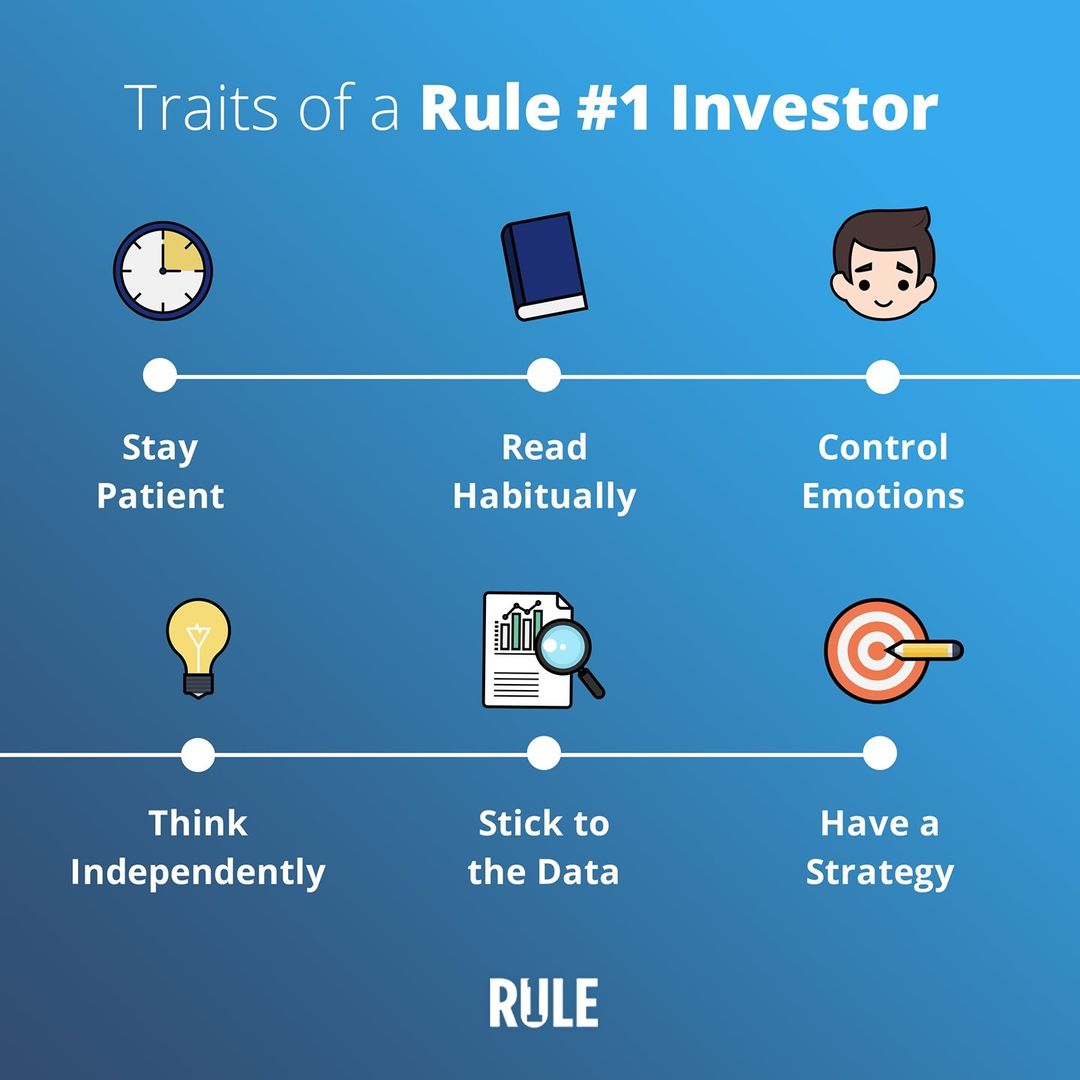Smart Investments for Beginners: Getting Started
Smart investments for beginners are a great way to start building wealth. It's not rocket science, but it does take work. Smart investments for beginners don't mean getting rich quick, but creating a good, stable financial future. This guide will walk you through the fundamentals of smart investments for beginners.
What are Smart Investments?
Smart investments for beginners aren't about taking huge risks. It's about putting your money where it can grow steadily over time. Smart investments for beginners focus on reliable options, and long-term gains.
Smart investments for beginners involve considering risk tolerance, understanding your goals, and putting a solid plan together. These careful selections are what separate smart investments for beginners from others. Smart investments for beginners need clear strategies. This will build long-term, stable returns.
5 Simple Steps to Smart Investing
- Know Your Goals: What are your financial objectives? Retirement, buying a house, or funding your children's education? Smart investments for beginners must fit your plans.
- Define Your Risk Tolerance: Are you comfortable with potential losses? Some investments, smart investments for beginners should fit this personality, can change rapidly in value.
- Diversify Your Portfolio: Spreading your money across different assets is key. Smart investments for beginners include varied options, like stocks and bonds.
- Set a Realistic Budget: Determine how much you can realistically invest. Start small and add to your budget.
- Stay Informed: Track the market and make adjustments to your investments as needed. Continuous study of smart investments for beginners keeps one alert to changing scenarios.
Common Mistakes to Avoid in Investing
- Chasing short-term gains: Focus on long-term growth. Short-term gain isn't a good practice for smart investments for beginners.
- Investing more than you can afford: Stick to a budget. Avoid overspending and overestimating one's ability to handle investment returns. Smart investments for beginners do not mean gambling with money.
- Ignoring fees and costs: These reduce potential returns. Thorough investigation should cover all the associated fees of any potential smart investments for beginners
- Overreacting to market swings: Market volatility is normal; try to maintain your financial plan, a vital part of smart investments for beginners.
- Investing in only one asset class. Avoid getting trapped in one aspect, a core part of the smart investments for beginners.
Best Investment Options for Beginners
- Index funds: These track a broad market index, providing a diversified approach for your smart investments for beginners. A cost-effective choice.
- Exchange-traded funds (ETFs): Similar to index funds, but often offer more specific investment targets for a more comprehensive approach to smart investments for beginners.
- High-yield savings accounts: Provides relatively safe options to grow initial funds and test the concept of smart investments for beginners.
- Certificates of deposit (CDs): Provides guaranteed returns but limits your choices in potential yields for smart investments for beginners.
Why Investing is Important
Investing is key to securing your future financial freedom. It allows you to grow your money and generate higher returns in contrast with keeping it in a low-interest-rate bank account. The simple act of smart investments for beginners brings more to the table in the long run. Smart investments for beginners must focus on gaining steady income for an even greater level of comfort. Understanding smart investments for beginners will lead to wealth creation and peace of mind about financial preparedness in the long term. Smart investments for beginners can boost any plan of financial comfort.
Investing builds wealth gradually and teaches you valuable life lessons in managing and securing your financial stability, an extremely helpful asset in all situations and crucial for long-term security and goals. Smart investments for beginners give one long term security with appropriate management and strategies. The growth that these methods will achieve are quite extraordinary. Smart investments for beginners give an incredible base in financial security and provide stability. Smart investments for beginners provide more substantial growth than saving in any low-yield accounts.
7 Reasons to Start Investing Early
Starting early with smart investments for beginners can be a game-changer. This isn't just about the potential for high returns, it's also about unlocking the power of compounding. Compounding is your friend, it's one of the most powerful forces for building wealth in smart investments for beginners. Time is your biggest ally. Compounding helps make small amounts grow and work for you over years or even decades.
-
Time is golden: Every day counts when making smart investments for beginners, and beginning early means huge benefit. Early-stage smart investments allow your money to grow in the long run and even generate revenue that produces more gains and return to work. You are looking for years or decades.
-
Compound interest: It builds quickly and builds upon your growing earnings, pushing that wealth to heights over time. The more time you have for these smart investments for beginners, the more your cash generates its own revenue and turns that into profit to produce huge income
-
Higher potential returns: When you start investing young, the longer your assets work for you the bigger a possible reward for all your smart investments for beginners
-
Risk tolerance and your experience: Over years and over decades with the right smart investments for beginners, risk and investment appetite often evolve, and you become a better investor by your hard earned experience and learn from your investment mistakes. Your risk tolerance also expands or shrinks over time, and learning how that changes will aid your financial management journey through many different types of smart investments for beginners
-
Inflation protection: Investments often keep up with or even outpace inflation, protecting your money's purchasing power with smart investments for beginners
-
Flexibility in life events: Sudden or long-term life events can impact how you budget, whether its your college student children needing funds, emergency expenses or even future goals for smart investments for beginners or even big financial changes or just life circumstances can happen unexpectedly
-
Wealth creation: Investing consistently as a beginner often starts with just small changes, and by having an open mind you make money for your long-term goal.
Smart Investments for Beginners: Setting Goals
Smart investments for beginners involve goal setting—a critical first step in this journey to understanding smart investments for beginners and maximizing their chances to invest wisely. Start by clearly identifying the "what" you're investing for; a home? Retirement? A new car? Write it down. These steps below outline how you can set goals for smart investments for beginners
-
Establish short-term goals
-
Decide your time horizon (When do you need the money?)
-
Track progress, always. Be consistent. Regularly evaluating your current performance helps assess where you're going with your smart investments for beginners. It gives direction as you monitor the changes
-
Make smart adjustments as you learn
Types of Investments Explained
Numerous investment options cater to different beginner strategies in smart investments for beginners. Understanding these choices and risk tolerance is key:
-
Stocks: Ownership in a company, potential for high growth with risks
-
Bonds: Debt obligations issued by companies or governments; relatively stable but potentially lower return with reduced risks.
-
Mutual funds: Collections of various investments managed by experts— a good diversification for beginners and provides smart investments for beginners.
-
Index funds: Similar to mutual funds; follow market indexes. Very beginner friendly for long-term returns
-
Real estate: Owning land or buildings (real estate investment trust or REITs); provides income and stability and growth in smart investments for beginners. It requires knowledge about smart investments for beginners
Understanding Risk Tolerance in Investing
Everyone's different in their risk appetite, a cornerstone of smart investments for beginners. Your comfort level with financial uncertainty influences which smart investments for beginners best match your character
-
Conservative investors: Prefer lower-risk choices with possible smaller returns, for instance, mutual funds and savings accounts and some bonds in smart investments for beginners
-
Moderately aggressive: Seek both gains and stability, including some investments like small stocks and real estate (some bonds in smart investments for beginners) and REIT
-
Aggressive investors: Tolerate a higher possibility of big changes or risk in returns but are seeking substantial growth, investing in more active, high-growth stock
Investing with a Budget: Tracking Your Finances

Source: abcthebank.com
A financial budget gives a concrete pathway for understanding personal expenses in a new endeavor, understanding smart investments for beginners.
Keep detailed records of where your money goes with smart investments for beginners to keep yourself mindful of your spending patterns
-
Set financial limits
-
List monthly incomes to maintain your track and understand where your budget will stand.
-
Record expenditures to understand your usage, knowing where your money goes each month
-
Analyze cash flow by understanding spending and incomes from work, to check the amount available, your net earnings from work. Analyze expenses and the potential return in relation to costs

Source: pinimg.com
Investment Basics for Beginners
Understanding fundamental elements of the market before entering the game is vital, whether its understanding risk or learning investment styles and principles and to avoid pitfalls in smart investments for beginners
-
Set up an investment account—necessary before even investing
-
Calculate your budget or plan out your expenditure pattern and determine the size and cost for an investment strategy to choose different methods or ways of implementing smart investments for beginners and grow financial well-being
-
Explore different investment options that interest you
-
Begin making tiny deposits gradually with smart investments for beginners, to build a foundation of consistency
3 Easy Ways to Choose Investments
Smart investments for beginners are key to financial freedom. Learning to pick smart investments is a fundamental skill, and many beginners feel overwhelmed. These three straightforward methods will set you up for smarter investing choices.
-
Know Your Goals: What's your financial aim? Retirement? A down payment? Understanding your financial goals determines your perfect investment strategy.
-
Assess Risk Tolerance: Everyone's risk comfort level is different. Some investments, like stocks, come with higher chances of big wins—or big losses. Lower-risk options, like bonds, provide steady growth.
-
Compare Options Carefully: Stocks, bonds, mutual funds, and real estate— each one has unique benefits. Don't make rash decisions. Research what you need for each specific situation in smart investments for beginners
Researching Investment Options
Deeply researching each possible investment opportunity is vital in smart investments for beginners.
-
Scrutinize Track Records: History matters. Look into past performance of any investment; even with the recent bull market, consistent history points to long-term viability in your smart investments for beginners portfolio.
-
Seek Diverse Strategies: Investing in various investment products mitigates potential financial losses, particularly for the beginner. Diverse investments form your future investment.
-
Read Analyst Reviews: Don't be scared. Investment analysts can provide great advice to aid you in your smart investments for beginners research
Protecting Your Investment
Protect your investments; a strong financial position depends on secure investments.
-
Secure Accounts: Avoid sharing your login or PINs and using a secure financial platform in all cases for investments for beginners to maintain your investments safely.
-
Regular Review: Monitor investments closely to catch problems. It's easy to overlook something significant if you're a beginner
-
Educate Yourself: A lot of valuable learning about protecting your investments as a beginner can come through courses, and reading material online; read investment blogs as part of your learning approach to your smart investments for beginners.
Starting Your Investment Portfolio
Starting a smart investments for beginners portfolio seems daunting at first. A clear process is needed.
-
Start Small: Start small. A lot of beginner's mistakes are because they start off too aggressively with huge investment amounts. Tiny but thoughtful investments compound nicely.
-
Consistency is Key: Regular, consistent deposits over time are important, especially for long-term smart investments for beginners goals. This consistency matters when your goal is investing.
-
Plan Ahead: Budgeting wisely before beginning can greatly benefit your overall smart investments for beginners planning. Allocate your financial needs as part of your investment strategy to start and be consistent about it to help reach your smart investments for beginners goal in the near or far future.

Source: co.ke
Important Investment Resources
Accessing trusted and credible information about investing, such as learning resources or experts or influencers, is helpful. This includes many different factors of a specific financial aspect of smart investments for beginners that will help in understanding or solving a beginner's financial situation in today's financial world.
-
Reliable Websites: Several websites and financial publications give important, well-researched info about investing. Keep up with the market
-
Financial Advisors: Expert advisors help devise a tailor-made investment strategy to fit individual needs. An advisor can advise you on your investments for beginners. Financial advice from expert advisors will help shape your investing skills if used correctly. They can advise for better returns
-
Educational Courses: Online investment courses provide knowledge for beginning investors. Many smart investment for beginners courses are free.

Source: ctfassets.net
Budgeting for Investment Goals
Budgeting sets you up for your investing targets in a beginner's financial situation; without smart investments for beginners goals in place you have nothing to do in your smart investments for beginners financial plan.
-
Track Your Expenses: Understand your cash flow. See where your money is going for clear insight about future budgeting, as smart investments for beginners need budgets.
-
Create a Budget: Setting aside a specified budget from your overall earnings from an individual's job helps maintain the investment fund and makes it achievable
-
Track Progress Regularly: This approach is great to track returns on the initial investments you set up when budgeting is put in place to reach specific goals in smart investments for beginners.
Smart Investments for Beginners: Financial Advice
Smart investments for beginners can feel daunting, but they don't have to be. Building wealth takes time, smart decisions, and a little bit of planning. Smart investments for beginners, even if you start small, are vital to your financial future.
Working with a Financial Advisor
Working with a financial advisor is often smart for beginners. Advisors offer specialized knowledge and unbiased opinions.
- Advisors know investment market patterns.
- Advisors assess risk tolerance for personalized strategies.
- Advisors develop investment strategies tailored to your financial goals.
- Important! Understand advisory fees and processes before hiring anyone.
5 Financial Tools Every Investor Needs
Smart investors need reliable tools to manage investments effectively.
-
Budgeting App: Essential for tracking income, expenses, and building financial plans.
-
Investment Tracking Platform: Helps visualize investment performance.
-
Portfolio Management Tools: A helpful resource for checking on investment details.
-
Online Savings & Checking Accounts: Convenience in controlling and tracking money flow.
-
Tax Software: Simplify tax filings related to investment income.
Key Things to Know Before Investing
Before jumping in, consider these key factors for smart investments for beginners.
-
Define Financial Goals: Be specific. (What's your aim?)
-
Research Investment Options: Thoroughly understand types before investing. Always conduct research; even experienced people do this, it is critical for beginner investors.
-
Understand Risk Tolerance: Recognize potential losses.
-
Start Small and Consistent: Don't put your whole fortune into something right away, but maintain small, continuous efforts.
-
Long-Term Perspective: Avoid impulsive reactions in the market and adopt a forward-looking approach, always remembering "smart investments for beginners" means thinking ahead, rather than reacting hastily. Invest regularly; it is often far better for "smart investments for beginners."
Common Questions about Smart Investing
Common questions surround smart investments for beginners, including the crucial "What if things go wrong?".
- Can I make money in investing?: Many methods exist; the more your understand "smart investments for beginners," the better the possible returns will be.
- Is there guaranteed profit?: Smart investment usually implies potential profit but, remember that guarantees are usually uncommon in the investment field. It is smart to invest intelligently, to look carefully at what might happen to your funds; do not put money where it might risk disappearance. Smart investment is a journey with no shortcuts.
- How much do I invest?: Starting small is usually ideal for "smart investments for beginners."
- How frequently do I need to check investment returns?: Consider regularly checking performance to make educated decisions concerning your smart investments for beginners portfolio.
Learning to Evaluate Your Investment Performance
Regular assessment is crucial for smart investments for beginners.
- Monitor investment performance periodically to understand market dynamics better.
- Tracking performance is key to assessing if strategies need adjusting and keep them on course to meet personal objectives.
- Evaluate gains and losses in the context of established goals and long-term objectives; you cannot succeed unless you track things that happen as an element of any form of intelligent or worthwhile investment decision.
Remember: "smart investments for beginners" usually requires education and careful planning and smart investment tools are vital in navigating this area, always. Be mindful of fees for both service, administration, and for tax-related purposes on "smart investments for beginners". Learn by studying successful techniques employed by successful investors to maximize your investment's chances for profitability, thus understanding more and more what is actually a key, valuable form of smart investment that can provide lasting results and the way you can maximize it. The more you look for success and the easier you make yourself find methods of learning and evaluating the success rate of each approach, the more efficient will your decisions be when it comes to what should happen, from an investment point of view, from the standpoint of maximizing financial well being through smart investment practices; you may well find this quite insightful to see these key details as something in tune with all good long-term financial plans that would enable a sustainable level of positive change. Learning, implementing these good ideas in any situation where it could prove of practical, concrete value; and to adopt as a regular habit; will undoubtedly give any beginning investor the edge over their competition.

Source: smart-investing.in
Tips for Successful Investing
Smart investments for beginners are key to building a future you deserve. Understanding basic strategies empowers you to achieve financial goals. Smart investments for beginners don't require fancy schemes, just consistent effort. Focus on your own financial situation, set your pace, and choose options suitable for your risk tolerance.
- Start Small: A little goes a long way. Smart investments for beginners begin with reasonable amounts. Avoid being overly ambitious. Tiny steps to bigger wins
- Know Your Goals: A defined goal provides focus and purpose. Smart investments for beginners become more strategic and personalized if clear direction exists. Want early retirement? Early or large wins?
Keeping Up with Market Trends
Smart investments for beginners rely on adaptability. Trends fluctuate rapidly, influencing investment success. Tracking market news empowers better choices. Daily updates and news will shape your perspective of how and when investments perform well or bad.
- Stay Updated: Stay aware of current events, industry news, global trends to spot opportunities. News alerts will become key to smart investments for beginners
- Economic Indicators: Analyze trends impacting stocks, bonds, and overall economic activity to get smart insights and anticipate how markets react. Economic information, if taken in advance is gold for smart investments for beginners
- Expert Opinion: Reliable expert analyses offer insight, however be skeptical and never blindly trust advice. Don't just follow news, question information to assess quality
Investment Strategies for Beginners
Starting small and gradually increasing your holdings helps understand the risk factors involved in smart investments for beginners. Understanding how your finances work is paramount. Your first step in creating smart investments for beginners is to have goals you can set up to improve.
- Diversification: Distribute investments across multiple asset types. This minimizes risk related to single investment failure in smart investments for beginners
- Long-Term Mindset: Avoid reacting to short-term market fluctuations; smart investments for beginners follow a strategic and long-term plan. Focus on compounding returns.
- Compounding Power: Earnings on both investment and reinvestment yields high-rewarding smart investments for beginners
Investing for Long-Term Growth
Long-term thinking and steady planning are essential parts of smart investments for beginners. A large majority of investors succeed on this model, which usually is steady.
- Patience is a Virtue: Consistent approach will create steady, smart investments for beginners
Smart Investing: Building Wealth
Smart investing involves both knowledge and dedication; your determination determines success or failure of smart investments for beginners. A focused mind is very important when making these kinds of important decisions of smart investments for beginners. This type of learning will always give returns eventually.
- Education is Crucial: Mastering core concepts in financial management lays the groundwork for a fruitful approach to smart investments for beginners
Managing Investment Risks and Losses
Risks accompany any venture; smart investors must embrace it. Recognizing risks will also give you the courage for what is possible and what isn't possible, smart investments for beginners
- Research Thoroughly: Thorough preparation in choosing investments in smart investments for beginners leads to fewer problems overall. Smart and capable beginners know this is true.
- Accept Potential Loss: Understand that not all investments turn into high profits, learn to cut your losses and move on. Smart investors for beginners will face several rejections
- Risk Management: Implement methods and strategies to mitigate any damages by controlling the risks

